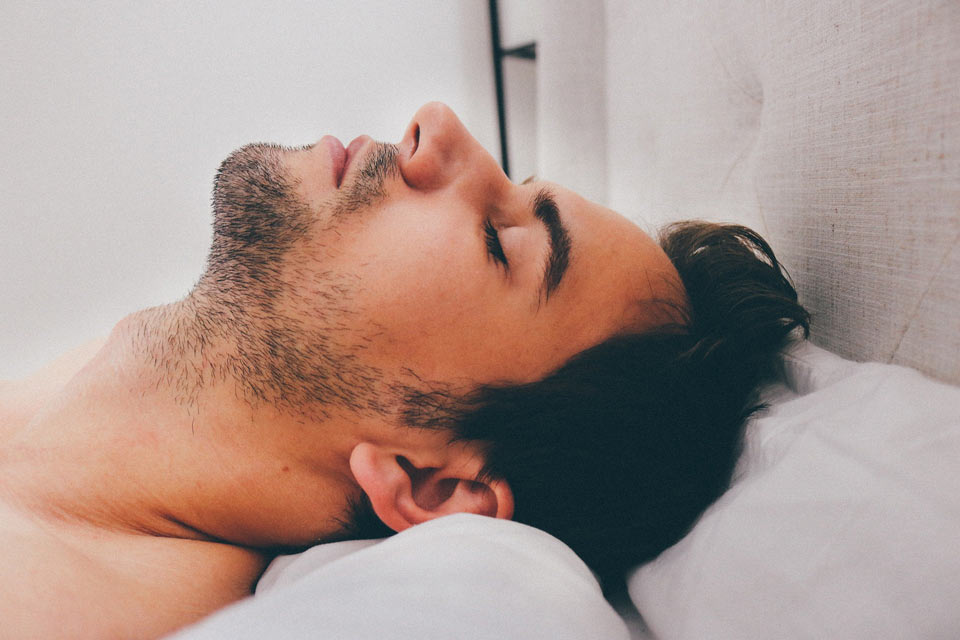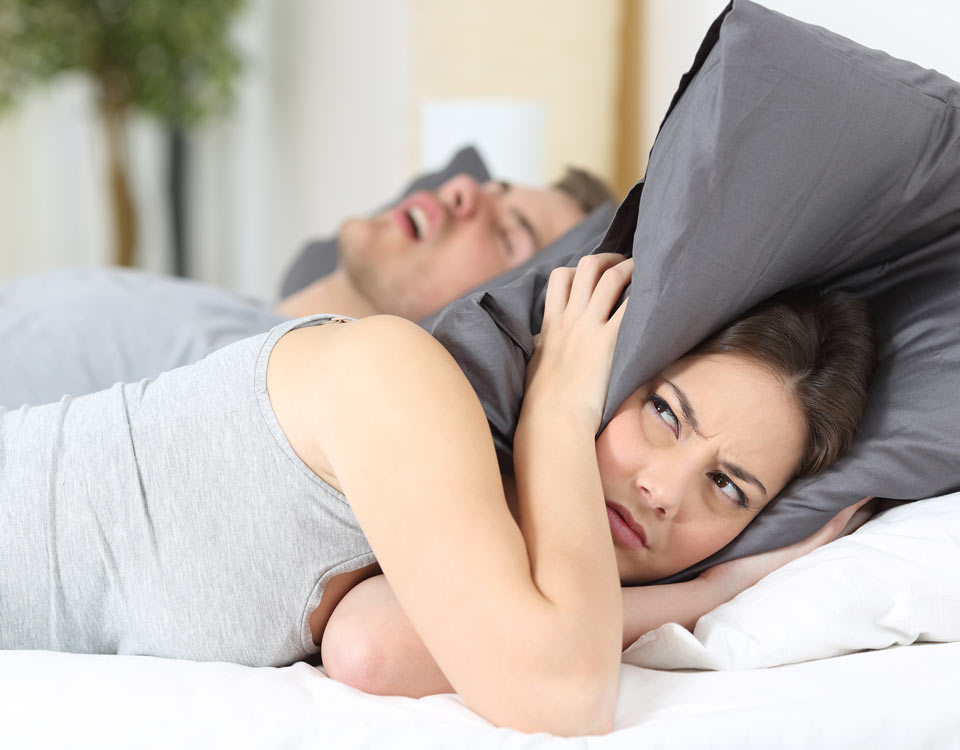We’ve all had days where we don’t feel our best thanks to a rough night. But if you often find yourself tired even after a full night of sleep, it might be sign of something serious.
Sleep apnea affects 22 million Americans, with estimated 80% of cases undiagnosed.
Sleep Apnea is a Sleep Disorder
Defined as a sleep disorder in which breathing repeatedly stops and starts, sleep apnea can leave you feeling exhausted during the day. Obstructive sleep apnea (OSA), the most common type of apnea, is caused by the muscles in your throat collapsing and causing a partial or full blockage of air flow. Central sleep apnea (CSA) is when your brain doesn’t signal your body to keep breathing while you sleep. Complex sleep apnea is a combination of both. With apnea, your sleep can be interrupted as many as hundreds of times per night due to lack of airflow. If you’re repeatedly waking up, you never fall into the deeper and more restorative stages of the sleep cycle.

Signs of Sleep Apnea
Many people with apnea are unaware they wake multiple times during the night. All they know is they feel tired the next day. One way to know how often you’re waking up at night is the with the free SleepScore App. Here are some other signs you may be suffering from sleep apnea:
- Loud snoring
- Your bed partner reporting that you stop breathing during sleep
- Waking during the night gasping or struggling for breath
- Waking in the morning with a dry mouth or throat
- Waking in the morning with a headache
- Excessive daytime fatigue
- Falling asleep while driving
Other Risks
Risk for sleep apnea increases with age and with being overweight or obese. Although apnea affects both genders, men are at higher risk than women. Diagnosis requires a sleep study, either in your home or a sleep lab. The free SleepScore App is a good start for learning how well you sleep at home.
The most common treatment involves use of continuous positive airway pressure (CPAP). Left untreated, sleep apnea can lead to serious consequences such as high blood pressure, heart disease, stroke, diabetes, and depression.
If you think you might be suffering from sleep apnea, talk to your doctor.

References:
“Obstructive Sleep Apnea” AASM
https://aasm.org/resources/factsheets/sleepapnea.pdf
“Sleep Apnea.” Mayo Clinic
https://www.mayoclinic.org/diseases-conditions/sleep-apnea/symptoms-causes/syc-20377631
“Sleep Apnea Information for Clinicians” ASAA
https://www.sleepapnea.org/learn/sleep-apnea-information-clinicians/
“Sleep Apnea Information for Individuals” ASAA
https://www.sleepapnea.org/learn/sleep-apnea/
“Why Does Sleep Apnea Cause Fatigue?” ResMed
https://www.resmed.com/us/en/blog/about-sleep-apnea/why-does-sleep-apnea-cause-fatigue.html

